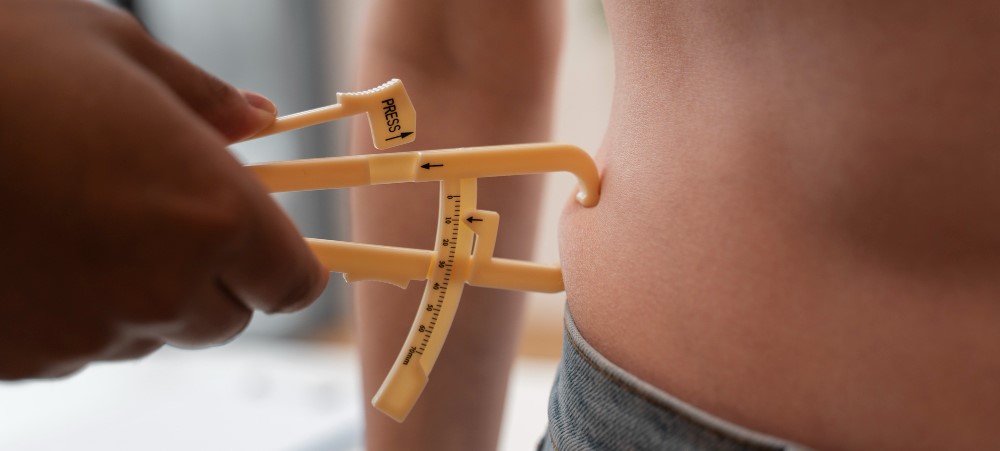本翻譯僅作學術交流用,無商業意圖,請勿轉載,如有疑議問請來信
最新研究顯示,透過初級保健診所實施的密集體重管理方案,能顯著提高2型糖尿病患者的緩解率。在這項涵蓋蘇格蘭和英格蘭的DiRECT試驗中,參與者經過專門的飲食計劃和生活方式調整後,近半數成功達到無需藥物治療的非糖尿病狀態,證明了體重控制在糖尿病治療中的重要性和可行性。

由初級保健主導的2型糖尿病減重治療以實現緩解(DiRECT):一項公開標籤的集群隨機試驗
Primary care-led weight management for remission of type 2 diabetes (DiRECT): an open-label, cluster-randomised trial
Lean ME, Leslie WS, Barnes AC, Brosnahan N, Thom G, McCombie L, Peters C, Zhyzhneuskaya S, Al-Mrabeh A, Hollingsworth KG, Rodrigues AM, Rehackova L, Adamson AJ, Sniehotta FF, Mathers JC, Ross HM, McIlvenna Y, Stefanetti R, Trenell M, Welsh P, Kean S, Ford I, McConnachie A, Sattar N, Taylor R. Primary care-led weight management for remission of type 2 diabetes (DiRECT): an open-label, cluster-randomised trial. Lancet. 2018 Feb 10;391(10120):541-551. doi: 10.1016/S0140-6736(17)33102-1. Epub 2017 Dec 5. PMID: 29221645.
https://pubmed.ncbi.nlm.nih.gov/29221645/
Abstract
Background
Type 2 diabetes is a chronic disorder that requires lifelong treatment. We aimed to assess whether intensive weight management within routine primary care would achieve remission of type 2 diabetes.
Methods
We did this open-label, cluster-randomised trial (DiRECT) at 49 primary care practices in Scotland and the Tyneside region of England. Practices were randomly assigned (1:1), via a computer-generated list, to provide either a weight management programme (intervention) or best-practice care by guidelines (control), with stratification for study site (Tyneside or Scotland) and practice list size (>5700 or ≤5700). Participants, carers, and research assistants who collected outcome data were aware of group allocation; however, allocation was concealed from the study statistician. We recruited individuals aged 20-65 years who had been diagnosed with type 2 diabetes within the past 6 years, had a body-mass index of 27-45 kg/m2, and were not receiving insulin. The intervention comprised withdrawal of antidiabetic and antihypertensive drugs, total diet replacement (825-853 kcal/day formula diet for 3-5 months), stepped food reintroduction (2-8 weeks), and structured support for long-term weight loss maintenance. Co-primary outcomes were weight loss of 15 kg or more, and remission of diabetes, defined as glycated haemoglobin (HbA1c) of less than 6·5% (<48 mmol/mol) after at least 2 months off all antidiabetic medications, from baseline to 12 months. These outcomes were analysed hierarchically. This trial is registered with the ISRCTN registry, number 03267836.
Findings
Between July 25, 2014, and Aug 5, 2017, we recruited 306 individuals from 49 intervention (n=23) and control (n=26) general practices; 149 participants per group comprised the intention-to-treat population. At 12 months, we recorded weight loss of 15 kg or more in 36 (24%) participants in the intervention group and no participants in the control group (p<0·0001). Diabetes remission was achieved in 68 (46%) participants in the intervention group and six (4%) participants in the control group (odds ratio 19·7, 95% CI 7·8-49·8; p<0·0001). Remission varied with weight loss in the whole study population, with achievement in none of 76 participants who gained weight, six (7%) of 89 participants who maintained 0-5 kg weight loss, 19 (34%) of 56 participants with 5-10 kg loss, 16 (57%) of 28 participants with 10-15 kg loss, and 31 (86%) of 36 participants who lost 15 kg or more. Mean bodyweight fell by 10·0 kg (SD 8·0) in the intervention group and 1·0 kg (3·7) in the control group (adjusted difference -8·8 kg, 95% CI -10·3 to -7·3; p<0·0001). Quality of life, as measured by the EuroQol 5 Dimensions visual analogue scale, improved by 7·2 points (SD 21·3) in the intervention group, and decreased by 2·9 points (15·5) in the control group (adjusted difference 6·4 points, 95% CI 2·5-10·3; p=0·0012). Nine serious adverse events were reported by seven (4%) of 157 participants in the intervention group and two were reported by two (1%) participants in the control group. Two serious adverse events (biliary colic and abdominal pain), occurring in the same participant, were deemed potentially related to the intervention. No serious adverse events led to withdrawal from the study.
Interpretation
Our findings show that, at 12 months, almost half of participants achieved remission to a non-diabetic state and off antidiabetic drugs. Remission of type 2 diabetes is a practical target for primary care.
Funding
Diabetes UK.
摘要
背景
2型糖尿病是一種需要終身治療的慢性疾病。我們旨在評估在常規初級保健中進行密集的體重管理是否能實現2型糖尿病的緩解。
方法
我們在蘇格蘭和英格蘭泰恩賽德地區的49個初級保健診所進行了這項公開標籤的集群隨機試驗(DiRECT)。診所通過計算機生成的列表以1:1的比例隨機分配,以提供體重管理計劃(干預)或按指南的最佳實踐護理(對照),並按照研究地點(泰恩賽德或蘇格蘭)和診所名單大小(>5700或≤5700)進行分層。參與者、護理人員和收集結果數據的研究助理都知道組別分配;然而,分配對研究統計師是隱藏的。我們招募了20-65歲,在過去6年內被診斷為2型糖尿病,體質指數為27-45 kg/m2且未接受胰島素治療的個體。干預包括停用抗糖尿病和抗高血壓藥物,全飲食替代(825-853千卡/天配方飲食,持續3-5個月),逐步食物重介紹(2-8週),以及長期減重維持的結構化支持。共同主要結果是體重減少15公斤或以上,以及糖尿病緩解,定義為至少停用所有抗糖尿病藥物2個月後,糖化血紅蛋白(HbA1c)低於6.5%(<48毫摩爾/摩爾),從基線到12個月。這些結果按層次進行分析。這項試驗已在ISRCTN登記,編號03267836。
發現
在2014年7月25日至2017年8月5日之間,我們從49個干預(n=23)和對照(n=26)普通診所招募了306名個體;每組149名參與者構成意向治療人群。在12個月時,我們記錄了干預組36名(24%)參與者體重減少15公斤或以上,對照組則無參與者(p<0.0001)。在干預組68名(46%)參與者和對照組6名(4%)參與者中實現了糖尿病緩解(勝算比19.7,95% CI 7.8-49.8;p<0.0001)。整個研究人群中,緩解與體重減少量相關,76名體重增加的參與者中無人實現緩解,89名維持0-5公斤體重減少的參與者中有6名(7%)實現緩解,56名體重減少5-10公斤的參與者中有19名(34%)實現緩解,28名體重減少10-15公斤的參與者中有16名(57%)實現緩解,以及36名體重減少15公斤或以上的參與者中有31名(86%)實現緩解。干預組的平均體重下降了10.0公斤(SD 8.0),對照組下降了1.0公斤(3.7)(調整後差異-8.8公斤,95% CI -10.3至-7.3;p<0.0001)。生活質量,以EuroQol 5維度視覺類比量表測量,干預組改善了7.2分(SD 21.3),對照組下降了2.9分(15.5)(調整後差異6.4分,95% CI 2.5-10.3;p=0.0012)。干預組的157名參與者中有7名(4%)報告了9起嚴重不良事件,對照組的2名參與者報告了2起。兩起嚴重不良事件(膽囊絞痛和腹痛),發生在同一名參與者身上,被認為可能與干預有關。沒有嚴重不良事件導致退出研究。
解釋
我們的發現顯示,在12個月時,幾乎一半的參與者實現了非糖尿病狀態的緩解並停用了抗糖尿病藥物。2型糖尿病的緩解是初級保健的一個實際目標。
資金來源
英國糖尿病協會。



 English
English Bahasa Melayu
Bahasa Melayu Bahasa Indonesia
Bahasa Indonesia Tiếng Việt
Tiếng Việt ไทย
ไทย